Union Finance Minister Nirmala Sitharaman presented her 8th union budget on Feb-1-2025. Calling it budget for ‘Viksit Bharat’, she stated that “this budget is dedicated to accelerating growth, driven by our aspirations..”
In her Union Budget 2025 speech, she laid out a comprehensive strategy to bolster India’s domestic electronic equipment industry, positioning it as a key driver of economic growth and technological advancement. The government’s initiatives aim to attract investments, stimulate innovation, and create significant employment opportunities, especially for the youth.
A key aspect of this vision is boosting local manufacturing in sectors like consumer electronics, semiconductors, and telecommunications equipment. The government plans to expand the Production-Linked Incentive (PLI) scheme and introduce new initiatives under the Semicon India Program to encourage domestic and global companies to invest in India. This will involve tax incentives, subsidies for research and development, and streamlined regulatory processes to make India a more competitive player in global markets.
Key Highlights of Union Budget 2025 Speech are:-
- The ministry of electronics and technology has been allocated ₹26,026.25 crore for FY 26, up from ₹17,566.31 crore (RE FY25)
- MeitY has been allocated ₹26,026.25 crore for FY 26, up from ₹17,566.31 crore (RE FY25).
- Allocation for the IndiaAI Mission and cyber security projects also increased.
- The BCD on open cells of LCD/LED TVs will be exempted.
- The BCD on carrier-grade ethernet switches has been reduced from 20% to 10%.
- Allocation for the production linked incentive (PLI) schemes got a 55.8% fillip from ₹5,777 crore (RE FY250 to ₹9,000 crore.
- The allocation for PLI scheme for manufacturing IT hardware almost quadrupled from ₹30 crore (RE FY25) to ₹115 crore (BE FY26).
- Allocation has been upped by 83.4% from ₹3,816.47 crore (RE FY25) to ₹7,000 crore (BE FY26).
- The budget to set up semiconductor fab units in the country has been more than doubled from ₹1,200 crore (RE FY25) to ₹2,499.96 crore (BE FY26).
- The funding to set up ATMP (assembly, testing, marking and packaging) and OSAT (outsourced semiconductor assembly and test) units, and facilities to manufacture compound semiconductors, silicon photonics, sensors fab, and other semiconductor-related equipment, was upped by 56% from ₹2,500 crore (RE FY25) to ₹3,900 crore (BE FY26).
- The government has increased its allocation for the modernisation of the Semiconductor Laboratory in Mohali from ₹11 crore (RE FY25) to ₹400 crore (BE FY26).
- The IT ministry allocated ₹2,000 crore to the IndiaAI Mission for FY25.
- The allocation for cyber security projects increased from ₹322 crore (RE FY25) to ₹590 crore (BE FY26), marking an 83.2 % increase.
- Allocation for the Computer Emergency Response Team (CERT-In) increased marginally from ₹241 crore (RE FY25) to ₹255 crore (BE FY26), a 5.8% increase.
- The DoT has also allocated ₹10 crore to set up a unified portal.
- Allocation for the National Informatics Centre (NIC) under MeitY, which maintains the government’s computer infrastructure, also saw a faint 4% increase from ₹1,538.34 crore (RE FY25) to ₹1,600 crore (BE FY26).
Here are the key post budget quotes from the Leading Industry experts

Ms. Shradha Suri Marwah, President, ACMA, said,
“The Union Budget 2025-26 is forward-looking and growth-centric, reinforcing the government’s commitment to strengthening India’s manufacturing sector and driving the transition to cleaner mobility solutions. The focus on MSMEs, innovation, exports and supply chain resilience will provide a strong impetus to the auto component industry. Further, the proposals for personal Income Tax will put more money in the hands of people thus fuelling consumption leading to economic growth.”
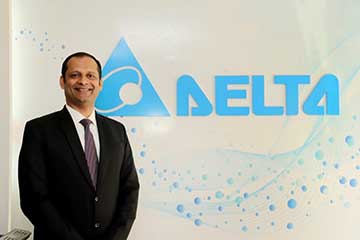
Mr. Niranjan Nayak, Managing Director, Delta Electronics India
The Union Budget 2025-26 lays down a strong foundation for India to transition towards becoming a sustainable, technology-driven, and self-reliant economy. The emphasis of the government on green energy, EV infrastructure, AI-led innovation, and digital transformation closely resonates with Delta’s aim to deliver energy-efficient, smart solutions that power the future.
This would place India on further accelerated net-zero emission paths and spur technological leadership for the country simultaneously. Higher penetration of clean mobility will be facilitated through investments in modernising smart grids and EV charging infrastructure.
Delta is placed to help since it leads the market for an EV charging and power solution. The PLI incentives for R&D and manufacturing under the scheme will further cement India’s position as a world manufacturing hub.
Delta continues to utilize its prowess in industrial automation, power electronics, and smart infrastructure for contribution to the development of India. We are hopeful that together with industry stakeholders and policymakers, these budgetary allocations will take on a shape where the vision is turned into an actual path leading to a sustainable, digitally empowered, and future-ready India.

Mr. Vineet Agarwal, Managing Director of Transport Corporation of India Ltd. (TCI)
“The Union Budget for FY26 maintains a healthy ₹10.18 lakh crore capital expenditure outlay while ensuring fiscal prudence, which is a commendable approach to balance growth and economic stability. The Finance Minister’s focus on multimodal connectivity and digital infrastructure will strengthen logistics efficiency and reduce costs. The revamped Shipbuilding Financial Assistance Policy, inclusion of large ships in the infrastructure master list, and the ₹25,000 crore Maritime Development Fund will enhance India’s coastal and inland logistics capabilities.
Additionally, the modified UDAN scheme and air cargo warehousing upgrades will improve regional connectivity, benefiting time-sensitive industries. The launch of BharatTradeNet as a unified trade platform will streamline international trade, complementing ULIP and PM Gati Shakti.
With continued policy support, green logistics, private sector participation, and PPP-driven infrastructure pipelines will drive the next phase of India’s logistics transformation, making supply chains more resilient, efficient, and globally competitive.”
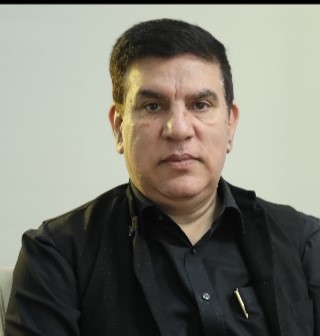
Saleem Ahmed, Officiating Head, Electronics Sector Skills Council of India (ESSCI)
We commend the Government of India for the visionary and forward-looking Union Budget presented under the Modi 3.0 administration. This budget prioritizes employment generation, skilling, social justice, and manufacturing—aligning seamlessly with India’s ambition to become a global electronics powerhouse.
Finance Minister Nirmala Sitharaman’s emphasis on strengthening the domestic electronics manufacturing ecosystem will significantly boost job creation, skill development, and innovation. The proposed national framework to support Global Capability Centers (GCCs) in Tier-2 cities is a crucial step toward fostering regional economic growth by leveraging local talent, upgrading infrastructure, and enhancing industry collaboration.
The government’s reforms in the power sector, particularly incentivizing states to improve electricity distribution and transmission, will provide a reliable energy backbone for the electronics and semiconductor industries. Additionally, India’s proactive stance in offering incentives, including tax benefits and land access, to attract global semiconductor and electronics firms reaffirms our nation’s commitment to becoming a leader in high-value manufacturing.
The proposed tariff reductions on key mobile phone assembly components, such as printed circuit board assemblies, camera modules, and USB cables, will strengthen India’s position in global supply chains. This move is a significant boost for MSMEs and large-scale manufacturers, fostering self-reliance while enhancing our global competitiveness amid shifting geopolitical dynamics.
A game-changing initiative in this budget is the introduction of ‘Bharat Trade Net’, a unified digital platform to streamline export documentation. By reducing administrative burdens and increasing trade efficiency, this initiative will empower Indian electronics manufacturers to expand their global footprint with ease.
Skilling remains a cornerstone of India’s growth strategy, and we at the Electronics Sector Skills Council of India (ESSCI) are particularly encouraged by the establishment of five National Centers of Excellence for Skilling. These centers will be instrumental in equipping our workforce with the expertise required for advanced manufacturing under the “Make for India, Make for the World” vision. ESSCI is committed to collaborating on curriculum development, training of trainers, skills certification, and industry-aligned skilling programs that meet global standards.
At ESSCI, we stand ready to support these transformative initiatives and contribute actively to India’s journey as a global electronics and semiconductor hub. This budget instills confidence in our collective ability to create a future where skilled talent, robust manufacturing, and sustainable economic growth drive India’s success on the world stage.
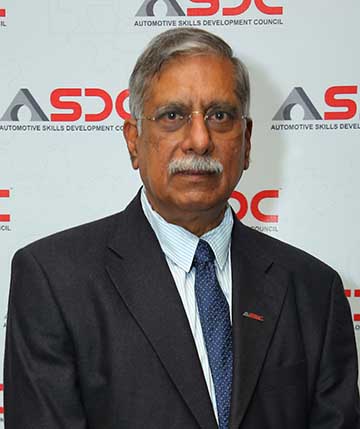
FR Singhvi, President, Automotive Skills Development Council (ASDC)
Automotive Skills Development Council (ASDC) welcomes the Union Budget 2025-26, which reinforces the Government of India’s commitment to skilling, employment, and innovation, particularly in the automotive and EV sectors. This budget prioritizes future-ready workforce development, ensuring India’s leadership in clean technology and advanced mobility solutions. A major highlight is the establishment of five National Centers of Excellence, leveraging global partnerships to enhance skilling and R&D. The ₹20,000 crore allocation for innovation will accelerate advancements in electric mobility, connected vehicles, and ADAS, benefiting both OEMs and component manufacturers. Additionally, ₹10,000 crore under the National Manufacturing Mission will strengthen clean tech manufacturing, supporting EV battery and solar panel production.
Skilling initiatives have received a major boost with:
- 50,000 Atal Tinkering Labs fostering hands-on learning and innovation.
- PM Research Fellowships, offering 10,000 scholarships over five years, driving cutting-edge research in mobility and automation.
- Expanding five IITs and adding 6,500 seats to enhance access to technical education.
- 10,000 new medical seats this year (75,000 over five years) to support healthcare workforce development.
- ₹500 crore AI Centre of Excellence, integrating AI-driven mobility solutions into skilling and education.
Additionally, the Academic Bank of Credits’ budget has increased to ₹16 crore, streamlining digital learning pathways for skill enhancement. Broadband connectivity in all government secondary schools and new science centers will further bridge the digital divide and enhance skill-building opportunities. Union Budget 2024 places a strong emphasis on education and skilling, recognizing them as the foundation for India’s economic growth, particularly in new technologies and the mobility sector. By prioritizing skill development and research, the government is ensuring that India’s workforce is prepared for the demands of an evolving global economy. ASDC remains committed to aligning skilling programs with industry demands, ensuring a robust talent pipeline for automotive manufacturing, EVs, and emerging mobility solutions. This budget is a major step toward job creation, global competitiveness, and India’s leadership in sustainable mobility.

Mr. Ashish P. Dhakan, Managing Director & CEO of Prama Hikvision India Pvt. Ltd.
We welcome the progressive Union Budget 2025-2026, which has a future roadmap to steady reforms. It has a booster dose for India’s technology ecosystem. This is a growth-oriented budget with significant relief for the middle class. The Union Budget has sparked interest in the video security industry and its key stakeholders. The key announcements and provisions relevant to the video security industry are getting positive feedback.
The budget proposes establishing a Centre of Excellence in Artificial Intelligence for education, with an outlay of ₹500 crore. This initiative could have positive implications for AI-powered video security solutions. The Union Budget aims to boost domestic semiconductor manufacturing through incentives and investments. This could lead to advancements in video security technology, such as improved camera sensors and processing capabilities. The budget proposes exempting customs duties on critical minerals, including lithium-ion battery scrap, which could benefit the manufacturing of security devices. The budget plans to expand broadband connectivity to rural schools and health centers, which could create new opportunities for video security solutions in these areas. The incentives for ‘Make-in-India’ initiatives can help the electronic security industry to expand and grow further.

Mr. Vinod Aggarwal, MD & CEO, VECV
“We congratulate the government on presenting a forward-looking and growth-oriented Union Budget 2025–26. The budget reaffirms the government’s strong commitment to strengthening India’s manufacturing sector and accelerating the transition to clean and sustainable mobility while bolstering India’s economic resilience.
The introduction of the National Manufacturing Mission and the emphasis on Clean Tech Manufacturing, including National Critical Minerals Mission, particularly for EV batteries, motors, controllers, and high-voltage transmission equipment, will provide a significant boost to ‘Make in India’ efforts. The rationalization of custom duties on key raw materials and the reduction of inverted duty structures will also enhance cost-effectiveness in domestic manufacturing. The duty exemption on capital goods for EV battery manufacturing is a welcome step toward accelerating India’s electric mobility transition.
Furthermore, adjustments in GST rates, incentives for electric vehicle adoption and import duties on components will reshape the industry’s landscape. Increased allocations for infrastructure development, particularly in roads and transportation, will directly fuel demand for commercial vehicles. Additionally, budgetary provisions for working capital support, technology upgradation funds, and easier credit access will play a crucial role in strengthening the MSME ecosystem, ensuring its long-term growth and sustainability.
At VECV, we remain committed to advancing sustainable mobility solutions and contributing to India’s vision of a self-reliant, cleaner, and more efficient transportation ecosystem. The budget outlines a plan for promoting sustainable transportation through integrated infrastructure development initiative. Overall, the Union Budget 2025 reflects a comprehensive approach to stimulate inclusive economic growth through targeted investments in critical sectors that are essential for India’s development trajectory.”

Lt. Gen. AK Bhatt, Director General, Indian Space Association (ISpA)
“The announcement of the National Geospatial Mission shows the growing commitment of the government to use the downstream capabilities of the space tech sector. We welcome the announcement in the Union Budget to facilitate the modernization of land records, urban planning, and design of infrastructure projects under this crucial mission it is good to see how the industry and the government have realized the importance of these emerging technologies. Even the Ex-ISRO Chairman Shri S. Somanath last year stressed the need to focus on developing downstream capabilities to generate demand and attract investments in upstream activities like satellite development and launch services in India’s space sector. According to the ISpA-nasscom-Deloitte report, the market for the downstream space tech segment is expected to reach ~USD 610 billion by 2031.
The Budget’s focus on setting up National CoE for skilling is an exciting announcement which would help in upskilling our growing youth talent which is in dire need of these measures to compete on a global level. Also, the announcements around New Fund of Funds (FoF) for startups, setup of 50,000 Atal Tinkering Labs, an enhanced Credit Guarantee Scheme for Startups and the DeepTech Fund of Funds will give further push to the growing startup ecosystem including the space startups which are at a nascent stage.”
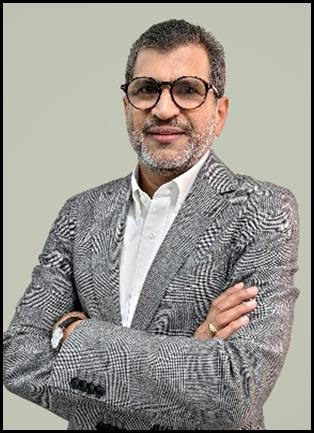
Agendra Kumar, Managing Director, Esri India
“A big thank you to our Hon. Finance Minister for announcing several programs as part of the budget for 2025-26 to give a boost to the geospatial sector. The most important one is the setting up of the National Geospatial Mission to develop foundational geospatial infrastructure and data to facilitate land records modernization, urban planning, and infrastructure design. The users in the government, private sector, and the industry have lived with the lack of good foundational data for a very long time. I believe this announcement will provide the necessary resources to create geospatial data that will serve as a foundation for social and economic development. By improving productivity across sectors such as agriculture, natural resources, energy generation and distribution, rural and urban initiatives, and governance, this effort will drive meaningful progress. Investment in research and development fuels economic growth, improves quality of life, and shapes the future. Rs 20,000 crore investment to drive private sector-led R&D and innovation, funds for Deeptech research, 10,000 fellowships under the PM Research Fellowship Scheme, and Rs 500 crore investment for a CoE in AI for education, are transformative steps to make India more competitive at the global level in terms of innovation and IP creation. Overall, the budget has set strong grounds for equipping India with the skills and resources necessary to navigate the evolving global landscape and achieve its vision of being a technologically advanced and prosperous nation.”

Kiean Khoo, Head of Asia, Milestone Systems
“The AI and technology-driven initiatives outlined in the Union Budget 2025 are a positive step toward accelerating India’s digital transformation. The government’s continued focus on smart infrastructure, advanced manufacturing, and the expansion of IT and data ecosystems reinforces India’s position as a global technology hub.
At Milestone Systems, we are excited and committed to supporting this vision through our industry-leading video technology and data-driven solutions. Our portfolio—including XProtect video management software, Arcules Cloud solutions, and BriefCam advanced analytics—empowers organizations with scalable, secure, and intelligent solutions. Across manufacturing, IT enterprises, data centers, airports, and transport systems, our innovations enhance safety, security, and operational efficiency.
We look forward to continuing our partnership in India’s growth journey and contributing to a safer, smarter, and more connected future.”

Mr. Praveen Kakulte – CEO, Powercon Group
“The Budget 2025 marks a crucial turning point in advancing India’s clean energy goals. The strong focus on capacity building through National Centers of Excellence of Skilling across the country is a vital step to equip the nation with the specialized skills and deep domain expertise needed to build advanced power plants and optimize energy extraction. This commitment will play a key role in achieving India’s Clean Power target of 500 GW by 2030 while maintaining cost efficiency.
With a clear roadmap in place, this budget sets the stage for India to ‘generate more GWh of energy from every installed GW of power,’ driving not only energy efficiency but also contributing to a greener, more sustainable future for generations to come. It’s an investment in both the workforce and the future of India’s energy landscape”.
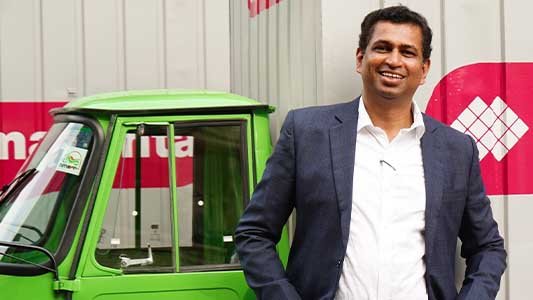
Mr Maxson Lewis, Founder and CEO of Magenta Mobility
“The Union Budget 2025 takes a big leap toward strengthening India’s economy while addressing the real challenges faced by SMEs and gig workers. MSMEs have long been the backbone of our EV industry, and this budget recognizes their role by offering targeted incentives, skill development programs, and infrastructure support—giving them the tools they need to scale and innovate.
At the same time, the expansion of the E-Shram scheme is a much-needed win for gig workers, ensuring they have access to social security, fair wages, and better upskilling opportunities. In today’s digital-driven world, these measures go a long way in creating a more inclusive workforce.
What’s particularly exciting is the boost for manufacturing—especially in electronics and EV battery production—along with fresh investment incentives for startups. By focusing on clean energy, self-reliance, and innovation, this budget isn’t just about numbers. It’s about empowering businesses, workers, and entrepreneurs to build a more sustainable and globally competitive India”.

Prashanth Doreswamy, President and CEO, Continental India
“The Union Budget 2025 is forward-looking and promises long-term, inclusive growth. We welcome its focus on strengthening India’s manufacturing sector, promoting innovation and exports, and accelerating the shift to clean mobility. The budget supports the growth of the auto component industry and MSMEs through initiatives to boost Make in India, such as enhancing supply chains, improving export competitiveness, and streamlining customs duties and tax reforms.
The National Manufacturing Mission with its focus on clean tech manufacturing especially for EV batteries, motors, controllers and Hi Voltage parts will provide the necessary boost for localisation. Rationalisation of customs duty on raw materials and reduction of inverted duty structure will make domestic manufacturing cost competitive. Credit guarantee schemes for MSMEs will play a crucial role in strengthening India’s manufacturing value chain.
We welcome the continued emphasis on technology as a key driver for expanding digital public infrastructure and further digitalizing the economy. Introduction of BharatTradeNet and export promotion mission help integrate into global supply chain and provide easier access to export credit and improving export competitiveness.
This will further enhance ease of doing business and attract foreign investment.
The focus on R&D-driven innovation is encouraging, as also the focus on Centre of Excellence in AI. Hopefully, these will serve to make India’s automotive sector globally competitive.
The restructuring of income tax slabs will have a positive impact on consumption, with increased purchasing power. This will likely improve the demand for budget-friendly cars, two-wheelers. Interestingly, more disposable income for digital-native GenZ may also see an increased demand for feature-rich cars.
Finally, we appreciate the emphasis on skill development, job creation, and increasing workforce participation for women, which aligns with the need for a robust, future-ready talent pool. Global skilling partnerships will further position India as a key player in global manufacturing.
The automotive industry is at a pivotal juncture, and with the right policy framework, India has the potential to become a global hub for automotive technology and manufacturing. These measures will drive productivity, innovation, and global competitiveness.”

Mr. Venkat Rajaraman, Founder and CEO, Cygni
Clean mobility is a growing important segment; and keeping energy transition as the backbone, the focus has been on strengthening to enable access to clean energy to power clean mobility. This will help to develop sustainable and innovative business models for batteries and energy as a service to improve the efficiency in the EV ecosystem in India. The announcement of a battery swapping policy and push for cleantech and electric vehicles will certainly benefit the EV segment and vehicle makers in India and will promote the sales of electric vehicles, battery production, and development in the country, adding special privilege to the private sector. Adding to it, battery swapping policy and interoperability standards will be implemented to overcome some challenges negatively impacting EV adoption in the country.
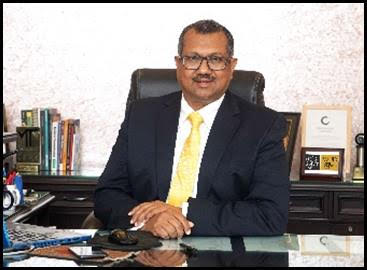
Dr. Sanjay Gupta, Vice Chancellor, World University of Design
“The Union Budget underscores the crucial role of AI and the need for upskilling, with the establishment of a National Centre of Excellence in AI being a pivotal step. This focus on AI will particularly benefit the design and creative sectors, propelling them to new heights and driving progress toward a ‘Vikshit Bharat.’ Additionally, the increase in seats for technological research, as announced in the budget, will strengthen the academic landscape and pave the way for groundbreaking innovations across various industries.”

A. Gururaj, Managing Director, Optiemus Electronics
“The Union budget has rightfully given impetus osn boosting the purchasing power of a large population with Tax relaxation and support to Agriculture and farming community. We firmly believe that with more money in hands farmers’ capability to adopt new technologies like Drones significantly improves and helps grow the market faster. For electronics manufacturing, the relaxation in Basic Custom duties for certain components is a positive step and a continuation of earlier policy initiatives and will boost indigenous manufacturing. We welcome the union budget in letter and spirit as both developments positively impact the Optiemus Group. We look forward to continuing to support the growth of our economy with our efforts.”

Mr. Vishwakumara Kayargadde, Co-Founder and COO, Saankhya Labs
5G in India is soon going to be a reality, as one of the major highlights in the Union Budget was the government’s assurance to conduct the required spectrum auction in 2022. This will help facilitate the rollout of 5G mobile services within 2022-23. We welcome the Finance Ministry’s intent to launch a design-led manufacturing scheme that will help build a strong ecosystem for 5G in the country. In addition to this, the government’s measures towards promoting a semiconductor manufacturing ecosystem will attract young talent, and make the industry more efficient and competitive. This will further boost fabless companies such as ours and other MSMEs working in the deep tech space, helping them engage in product R&D and design. Another laudable move by the government is to promote R&D and commercialization of technologies and solutions by enabling affordable broadband and mobile service proliferation in rural and remote areas.

Mr. Nilesh Patel, CEO, and Founder of Leadsquared on the Startup Industry.
This Budget proposal enables India to make digital progress across sectors and contributes to creating a digital, tech-enabled ecosystem. With the launch of the Digital DESL Stack portal, the government will empower the Indian youth to attain more relevant jobs, entrepreneurial opportunities and help them to upskill through online training.
I believe start-ups will contribute greatly to the Government’s mission of driving job creation across the skill spectrum.
Also, the introduction of digital currency through the use of blockchain technology in 2023, will make money management easier than ever.

Mr. Nilesh Mali, Founder, KDM India
Budget 2022 has given a boost to domestic electronics manufacturing and provides the much-needed incentive to the manufacturers and help in building manufacturing bases in India. Concessions in customs duty to electronics manufacturing is a positive move and will promote manufacturing across wearables, and specific mobile phone components.
Though the government is pursuing policies that promote the ‘Make in India’ concept, giving incentives and subsidies for companies designing products or doing Research and Development (R&D) in India would be a step in the right direction.
Besides, the rollout of 5G is going to be a big game-changer for us as this will increase demand for our products which are all 5G compatible.

Krishanu Acharya, CEO, Suhora Technologies
“It’s heartening to notice the emphasis given to Geospatial services in the Union Budget, we welcome the launch of a National Geospatial Mission to develop spatial data aimed at modernizing land records across the country. This is expected to give a flip to Geospatial services, expand market and its potential. The decision to grant the private sector to access PM GatiShakti essential data and maps, facilitating better planning and infrastructure development is path path-breaking step and has the potential to transform the sector. Suhora looks forward to working more closely with the government and our customers to bring Geospatial insights for further growth of our country and economy.”

Mr. Sandeep Lodha, Co-founder at Netweb Technologies
“It is heartening to see the government focus on the rural areas. This can accelerate the government’s earlier declared digital banks and overall enhance and enrich the rural economy. Digital banking and fintech spending by the government is going to enhance the financing and overall support the entrepreneurial spirit as well as benefit the IT sector to provide the required infrastructure.
Emphasis on 5G: The government’s announcement of a 5G spectrum auction by 22- 23 was on the expected line. It is good to see the announcement of the PLI scheme for design-led manufacturing, this will help in getting ready with Make in India products and solutions. We welcome the government commitment to R&D and formalizing the same by allocating 5% of Universal service obligation to this but will need to see when this can be effective on the ground. R & D has a cycle and sooner we get in we can start rolling the products when the actual implementation starts.

Mr. Akash Gupta, Co-founder & CEO, Zypp Electric
The formulation of battery swapping standards and interoperability is a much-needed step in the right direction. There’s been a lot of confusion in the swapping companies, which has dampened EV adoption. Seamless and widespread charging infrastructure is the need of the hour to accelerate the EV revolution in the country. The focus and thought towards the EV sector by the honorable finance minister reflects the government’s poise towards accelerating EV adoption. This will also help us achieve our vision of expanding our battery-swapping network across 100 cities in the next three years I would have loved if GST in battery and spare parts had also been reduced to 5% like it’s there for E-vehicles purchases; this would also help the entire electric vehicle ecosystem.

Aakash Sharma, Head – Strategy, Investor relations and Marketing , Solv on powering MSME
“As the backbone of India’s economy, MSMEs continue to drive innovation, employment, and exports, accounting for nearly 36% of our manufacturing and 45% of exports. Budget 2025 marks a transformative step forward with game-changing initiatives aimed at empowering this crucial sector.
The government’s increased credit guarantee cover—from ₹5 crore to ₹10 crore—will unlock ₹1.5 lakh crore in additional credit over the next five years. This will give MSMEs greater access to capital, allowing them to scale and innovate. Investment and turnover thresholds have been doubled, enabling more businesses to access government schemes aimed at growth and technological advancement.
New customized credit cards for microenterprises (up to ₹5 lakh) and ₹2 crore term loans for women and SC/ST entrepreneurs will simplify access to finance and nurture diverse leadership in India’s entrepreneurial ecosystem. As MSMEs continue to play a vital role in India’s growing exports, these financial tools will help them expand internationally, boosting India’s global trade potential.
We’re excited about the quantum of opportunity these changes bring. The availability of financing becomes easier. MSMEs can now innovate faster, reach new markets, and build stronger businesses. We remain committed to supporting MSMEs by providing seamless access to working capital, empowering entrepreneurs to thrive in this new evolving digital economy.”

Archana Jahagirdar, Founder & Managing Partner, Rukam Capital
“When startups are included in the central government’s annual budget planning, it is a moment to celebrate. We commend the Hon’ble Finance Minister for recognizing securities held by AIFs as Capital Assets—a decision that strengthens the case for CAT I & II by ensuring that gains from securities are treated as capital gains and that GST on security sales remains outside the framework. Additionally, the launch of the new ₹10,000 crore round under the Fund of Funds for Startups (FFS) scheme reaffirms the government’s dedication to fostering innovation and entrepreneurship. This renewed fund which aligns with the Startup India Action Plan and initiatives like the Startup Mahakumbh has played a pivotal role in driving India’s startup boom since its inception. We believe that increased financial support from the government, alongside efforts to reduce capital constraints and collaboration with industry will further accelerate the growth of Indian startups.”

Mr. Puneet Gupta, Managing Director & Vice President, NetApp India
I am excited to see the government’s focus on the technology sector, as a whole. The incentives towards creating digital infrastructure, education, and skilling, spell out the intent of developing the country’s human capital. The emphasis on digitized skilling will help make our country’s youth future-ready. Additionally, the announcement on RBI introducing digital currency and the government providing infrastructure status to data centers will help create a framework for emerging technologies making the digital India Inc better and stronger.”
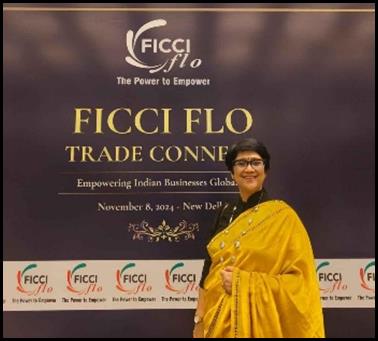
Joyshree Das Verma, National President, FICCI FLO
“As we analyze the proposed measures in the Union Budget, we applaud the government’s focus on empowering the less-recognized segments of our society, particularly women and marginalized communities. The introduction of term loans for 5 lakh women from SC/ST communities is a commendable step toward financial inclusion, providing critical resources for entrepreneurship. The Saksham Anganwadi and Poshan 2.0 programs will significantly improve nutrition for vulnerable children, mothers, and adolescent girls, laying the foundation for healthier future generations. The scheme for first-time entrepreneurs, especially women, SC/STs, presents immense potential for fostering innovation and economic growth. This budget reflects the government’s commitment to building an inclusive, self-reliant India, and at FICCI FLO, we are eager to collaborate in turning these initiatives into impactful successes. The Budget also offers strong support for MSMEs, with enhanced credit availability, new credit cards for micro-enterprises, and schemes to foster growth and job creation in labor-intensive sectors like footwear, toys, and food processing. I am truly optimistic about the transformative impact these measures will have on our economy and society.”

Dr. Miniya Chatterji, CEO, Sustain Labs Paris
“The Union Budget 2025 marks a good step towards a greener and more self-reliant India. By prioritizing domestic production of solar PV cells, wind turbine generators, and other clean energy technologies under the National Manufacturing Mission to reduce imports, India is moving toward self-reliance and climate resilience. The push towards promoting sustainable farming practices with the aim of reaching around 1.7 crore farmers through Prime Minister Krishi Yojana has the potential to have a big catalytic effect on mitigating India’s environmental challenges.
Additionally, the identification of MSMEs as an engine for growth can be a boost to employment, especially in the manufacturing sector. Finally, the target of 100GW nuclear energy by 2047 under the Nuclear Energy Mission will further add up to the country’s transition to net-zero. The budget for this year lays the groundwork for a more resilient India by promoting sustainable economic growth and self-sufficiency”.

Mr. Srinivasa Addepalli, Founder and CEO, GlobalGyan Leadership Academy
“This year’s budget places a strong emphasis on skilling, digital transformation, and industry-led workforce development, creating a solid foundation for a more competitive and future-ready talent pool. With a focus on MSME growth, the budget aims to drive employment generation and foster innovation—key catalysts for economic expansion. The establishment of National Centers of Excellence in Skilling will be instrumental in upskilling professionals, ensuring they have the capabilities needed to navigate today’s fast-evolving job market. These initiatives not only enhance workforce agility but also play a crucial role in nurturing leadership and entrepreneurship, empowering individuals to drive meaningful business and economic impact.”

Mr. Rajesh Gupta, Founder & Director, Recyclekaro
“The Union Budget 2025 takes a decisive step towards strengthening India’s battery recycling and manufacturing ecosystem. The exemption of Basic Customs Duty (BCD) on critical minerals like cobalt, lithium-ion battery scrap, lead, and zinc will enhance domestic resource availability, reduce dependency on imports, and accelerate value addition within India. This move aligns with India’s vision for a circular economy, fostering investment in battery recycling and EV supply chains. The addition of new capital goods for EV and mobile battery manufacturing will further boost local production and job creation.”

Mr. N.P Ramesh, COO and Co-Founder of Orb Energy
“With the 2025 budget announcement, Finance Minister Nirmala Sitharaman has set a clear path for India’s clean tech revolution. The National Manufacturing Mission aims to accelerate domestic production of solar cells/panels, and EV storage batteries ensuring that India not only strengthens its ‘Make in India’ vision but also becomes a key player in global supply chains. The reduction of BCD on Lithium batteries is a very welcome step, as Storage goes along with increased adoption of renewable energy.
Alongside this, the focus on Industry 4.0 opens up exciting opportunities for our youth to lead the charge in innovation, creating a sustainable and energy-efficient future for generations to come. This is more than just a step toward economic growth—it’s a bold move to make India a global hub for clean energy solutions, driving job creation, reducing dependence on imports, and ultimately contributing to India’s clean energy goals”.

Mr Ishan Chaturvedi, Co founder, Vareyn Solar Pvt. Ltd.
The budget is working towards incentivising clean and renewable energy which is great for the sector. To ensure accelerated adoption of solar energy, the minister announced that the government will support about 1 crore households under the rooftop solarisation scheme. This will help these households save up to 15000-18000 in a year.
In addition to this to meet the commitment for net zero by 2070 viability gap funding will also be provided for harnessing off shore wind for initial capacity or 1 gigawatt. The focus is on becoming Atma Nirbhar and reduce our country’s dependency on the export of natural gas. The budget had laid down a growth conducive environment for the renewable energy sector.

Mr Aditya Poonia, Founder, Etrica Power
The budget aims to promote clean and renewable energy, particularly through encouraging the adoption of solar power. The government plans to support approximately 1 crore households in implementing rooftop solarisation, leading to potential savings of 15000-18000 annually. Additionally, to fulfill the commitment to achieve net zero by 2070, the budget allocates viability gap funding for the initial capacity of 1 gigawatt in offshore wind harnessing. The emphasis is on achieving self-reliance and diminishing the country’s reliance on natural gas exports, fostering a growth-friendly environment for the renewable energy sector.
The budget aims to promote clean and renewable energy, particularly through encouraging the adoption of solar power. The government plans to support approximately 1 crore households in implementing rooftop solarisation, leading to potential savings of 15000-18000 annually. Additionally, to fulfill the commitment to achieve net zero by 2070, the budget allocates viability gap funding for the initial capacity of 1 gigawatt in offshore wind harnessing. The emphasis is on achieving self-reliance and diminishing the country’s reliance on natural gas exports, fostering a growth-friendly environment for the renewable energy sector.

Ms Sonali Chowdhry, CEO- Officenet
“The Union Budget 2025 highlights the government’s commitment to strengthening India’s workforce, a crucial factor in making the country a global manufacturing powerhouse. The introduction of the National Centers of Excellence in Skilling will equip workers with specialized skills, enhancing employability and productivity across industries. Additionally, the budget provides good support for gig employees, ensuring better protections and opportunities for this growing workforce segment fostering a more inclusive labour market.
With strong backing for MSMEs, agriculture, and overall economic growth, the budget creates opportunities for businesses to scale efficiently while ensuring workforce readiness. As India aims to be a global manufacturing leader, HRMS providers will play a key role in streamlining workforce management, optimizing productivity, and bridging skill gaps through digital solutions.”












